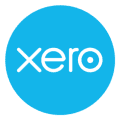
5 ways to secure finance and plan how to use it during COVID-19
Over £7.25bn has now been paid to more than 40,500 businesses under the UK government’s Coronavirus Business Interruption Loan Scheme (CBILS). More than 130,000 applications were also received for the newer Bounce Bank Loan Scheme (BBLS) on the first day of launch alone, with SMEs able to apply for between £2,000-£50,000.
Whilst there are some good options available, it’s really important to think carefully about how you plan to use and repay a loan. We’ve spoken to two experts, Katrin Herrling, CEO and Co-Founder of SME lending marketplace Funding Xchange, and Ollie Maitland, Co-Founder and Chief Product Officer at Capitalise.com - the adviser-led marketplace where businesses are supported by accountants to access funding. They’ve shared some advice on navigating funding.
1) What is the difference between the two loans?
Bounce Back Loans aim to address the need for much simpler, smaller loans with a quicker process to unlock funding, for those that need money immediately. These loans are also 100% backed by the government, compared with 80% for CBILS, so experts say there is a limited risk for the banks and therefore loans will be issued much faster.
2) Don’t forget that it’s debt
Whether it’s CBILS or BBLS, business owners should not forget that they will be expected to repay 100% of these loans, independent of the government guarantee.
“Don’t use debt unless you have a plan to repay it,” Herrling said. “If you default on this loan, it’ll have a significant impact on your future ability to get credit.”
The government has created a website to help you understand what each of the schemes are and what you’re eligible for. With other schemes available that don’t need to be repaid such as the furlough scheme, and numerous others by sectors - such as hospitality - Herrling recommended spending some time digging into the detail to find what’s available to you specifically before committing to a loan.
Maitland suggested leaning on accountants for advice before taking on any debt. “If you don’t have an accountant, now might be a good time to get one. They are getting a view across all of these schemes, including grants. Free money is better than borrowed money at all stages,” Maitland said.
3) Plan for your loan repayment before you take it on
Before taking on any type of loan, our experts recommend working with your accountant to build any potential loan repayments into your business forecast. This will ensure you’re able to repay this in the future without damaging your business.
“Some businesses may look at these schemes as easy money, without thinking through what the repayment will actually look like. Before moving forward, you need to understand what is required to pay back that money and build a specific plan,” said Herrling.
4) Which lender should I use?
There are now around 74 lenders accredited, half of which accept applications from new and existing customers while just over 20 are banks only open to applications from existing customers.
“The other half are only able to process applications from their own customers. That means there’s a relatively small pool of banks that are willing to look at you if you haven’t had a business account with them for at least six months.” Herrling said.
“If you’ve been declined by your bank,” Maitland added, “going to another bank will unlikely result in a different outcome, but going to alternatives in the CBILS programme is now a possibility.”
For businesses not successful with one of the banks, there are alternatives such as 15 regional lenders, over 20 specialist lenders and a handful of accredited digital lenders like Iwoca and MarketFinance - with more expected soon.
The team at Funding Xchange recently published a complete guide to CBILS lenders, while Capitalise has published a COVID-19 Hub, and a guide on how to apply for the loans.
5) Don't just focus on tomorrow; focus on your business in 6-12 months
It can seem obvious to use funds to fight the most immediate fires, but it’s important to think about the longer term health and viability of your business too.
Sharing lessons from countries like Germany coming out of lockdown, Herrling said it’s important to think about how you’ll use debt to support yourself not just during the lockdown, but also looking at what it takes to restart your business and grow in the future.


